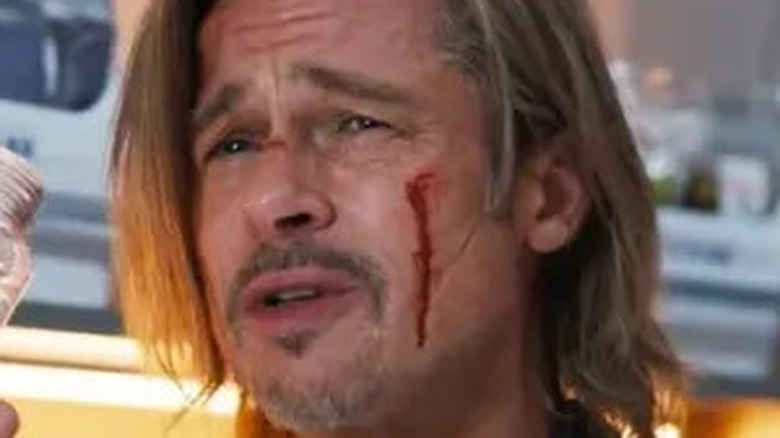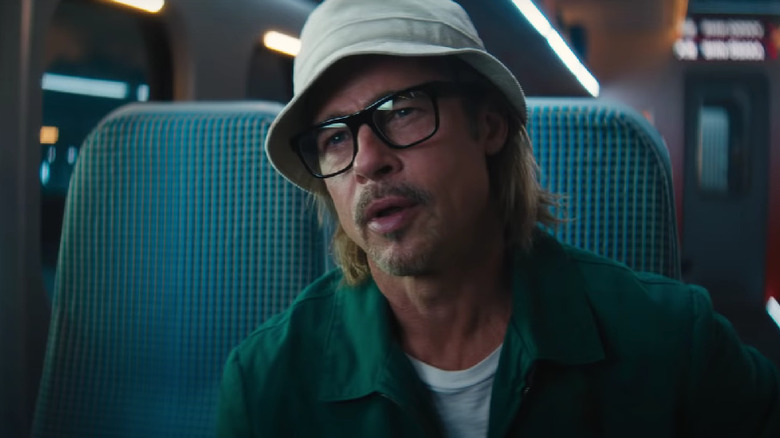Bullet Train's Author Wasn't As Involved In The Brad Pitt Lead Adaptation As You Might Think
The new Brad Pitt action-comedy flick "Bullet Train" explores what happens when you take a group of assassins and place them on the world's fastest train with a single objective goal to obsess over. Pitt's character, who works under the codename Ladybug, returns to the game after months of psychotherapy; what he really wants is peace and quiet. Determined to shake off his unlucky past, Ladybug tries to approach his new gig with a zen attitude; he has had a lot of bad luck in the field and hopes that this time he won't accidentally leave a trail of innocent bodies in his wake. But the briefcase that Ladybug has been hired to retrieve as part of his new mission is highly sought after by a number of different assassins working for different clients and factions and for different reasons. All of them are on the same bullet train heading from Tokyo to Kyoto. Cue disorganized chaos which will definitely test Ladybug's newfound confidence in his chosen lifestyle.
Kōtarō Isaka wrote the novel, "Maria Beetle," upon which "Bullet Train" is based. You might be surprised to learn that the author didn't have a lot to do with adapting the source material for the big screen.
Isaka was fine with ceding control to the show's director
In an August interview with Crunchyroll, Isaka revealed that he was thrilled to learn that "Maria Beetle" would be adapted into "Bullet Train." However, he left the look, design, and onscreen tone of the film to David Leitch, its director, and writer Zak Olkewicz, who adapted "Maria Beetle" for the big screen.
"I feel that a movie is a director's territory. In most cases, I trust the director and the production side with the material and leave it to them. Even with Bullet Train, I left things up to the production team and simply enjoyed reading the occasional reports of their progress," he said.
Isaka's point of view is not often shared by his fellow novelists. While some authors have waxed positively about the business of having their books turned into movies or TV Shows, some authors have reacted poorly to the process. Per IndieWire, writers as diverse as J.D. Salinger, Truman Capote, Gore Vidal, and Bret Easton Ellis have had negative reactions to the way big-screen versions of their books have been altered, cast, directed, or produced.

